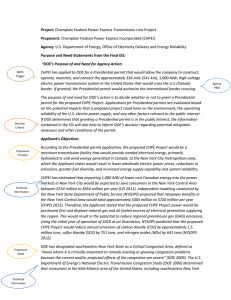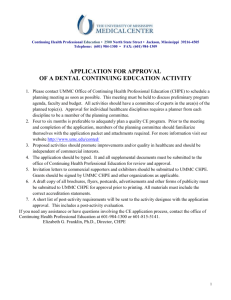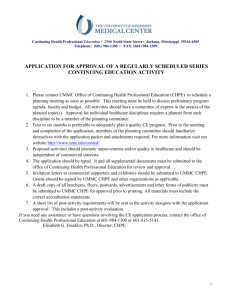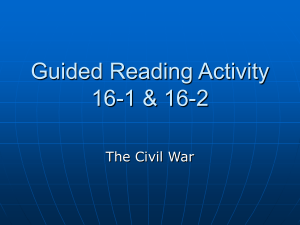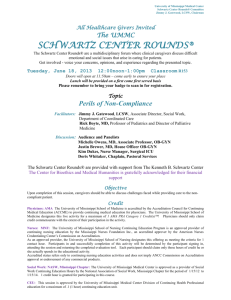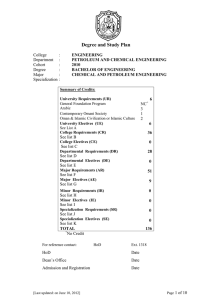CE ACTIVITY EVALUATION - University of Mississippi Medical Center
advertisement
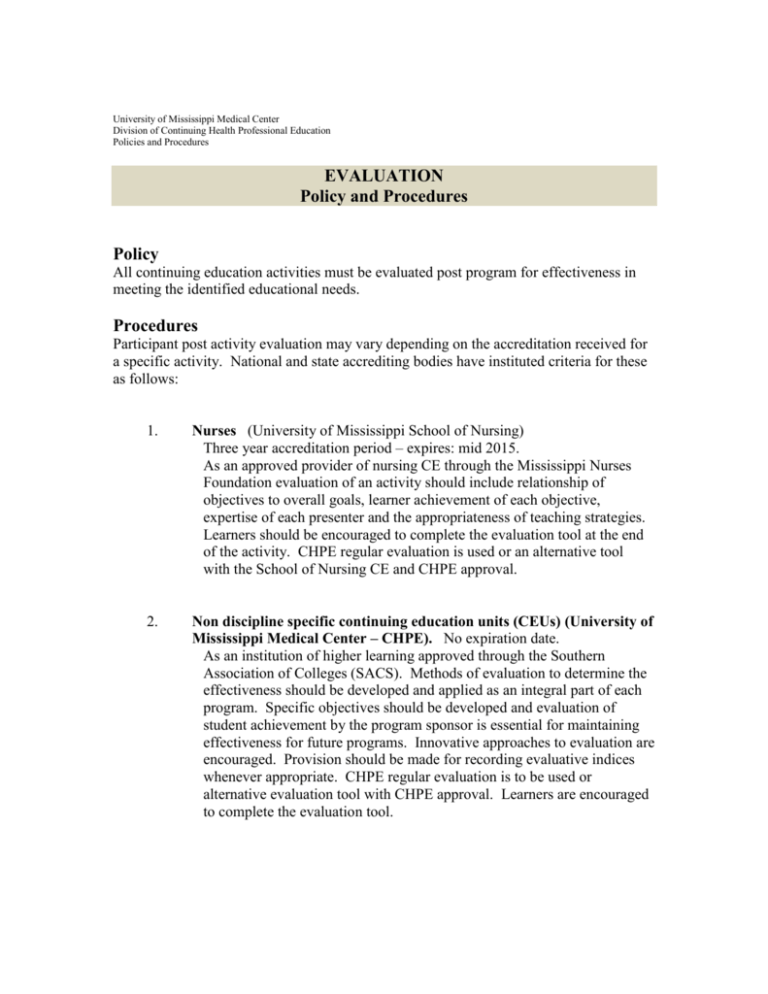
University of Mississippi Medical Center Division of Continuing Health Professional Education Policies and Procedures EVALUATION Policy and Procedures Policy All continuing education activities must be evaluated post program for effectiveness in meeting the identified educational needs. Procedures Participant post activity evaluation may vary depending on the accreditation received for a specific activity. National and state accrediting bodies have instituted criteria for these as follows: 1. Nurses (University of Mississippi School of Nursing) Three year accreditation period – expires: mid 2015. As an approved provider of nursing CE through the Mississippi Nurses Foundation evaluation of an activity should include relationship of objectives to overall goals, learner achievement of each objective, expertise of each presenter and the appropriateness of teaching strategies. Learners should be encouraged to complete the evaluation tool at the end of the activity. CHPE regular evaluation is used or an alternative tool with the School of Nursing CE and CHPE approval. 2. Non discipline specific continuing education units (CEUs) (University of Mississippi Medical Center – CHPE). No expiration date. As an institution of higher learning approved through the Southern Association of Colleges (SACS). Methods of evaluation to determine the effectiveness should be developed and applied as an integral part of each program. Specific objectives should be developed and evaluation of student achievement by the program sponsor is essential for maintaining effectiveness for future programs. Innovative approaches to evaluation are encouraged. Provision should be made for recording evaluative indices whenever appropriate. CHPE regular evaluation is to be used or alternative evaluation tool with CHPE approval. Learners are encouraged to complete the evaluation tool. 3. Pharmacists (The University of Mississippi School of Pharmacy, Bureau of Pharmaceutical Services (UMMC) As a nationally accredited program the Bureau of Pharmaceutical Services may apply for credit through the National Pharmacy Association for credit. All activities must be evaluated to measure effectiveness of the activity. Learners must complete the evaluation tool in order to receive credit. CHPE regular evaluation is to be used or alternative evaluation tool with Bureau and CHPE approval. 4. Physicians (University of Mississippi School of Medicine) Accreditation Approved: November 2012 – November 2014. Accreditation Provider Number is 000356. As a nationally approved organization by ACCME to award AMA Category 1 credit(s)™ it is mandated by the Essential Areas and their Elements #2.4 that all individual activities are evaluated to measure the effectiveness of the activity in meeting identified educational needs, as measured by satisfaction, knowledge or skill. Further evaluation to measure by practice application and/or health status improvement is encouraged. Providers should have a mechanism in place to identify appropriate time each learner attended at any one activity. When using the live activity evaluation tool UMMC has chosen to require physicians to include their name on the evaluation tool and to evaluate only the lectures they attended. Certificates awarding credits will be based on the evaluation completion unless otherwise indicated. Evaluation tools to include, but not limited to, CHPE live activity evaluation, RSS short form, activity course director/planners own evaluation tool (must be approved by CHPE before implementation), American Heart Association and American College of Surgeons certification course forms. 5. Social Worker National Association of Social Workers, Mississippi Chapter. (University of Mississippi Medical Center – CHPE) Accreditation Approved: January 15, 2012 through January 14, 2014. Measures of evaluation need to be established during the planning phase and linked directly with the event’s learning objectives. Two distinct but related measures of evaluation may be appropriate. The first is the instructor’s, sponsor’s and participants’ assessment of the event with respect to content, format, methodology, instruction and facilities. The second is assessment of the knowledge acquired by participants and is based on demonstration of a taught skill, an oral or written test, a project or report, a self-assessment checklist, other instrument designed to collect data on changes in participant knowledge or performance attributed to the educational experience. The instructor(s) and sponsor together should review the evaluation outcome and revise subsequent events accordingly. 6. Other accrediting bodies When other accreditation is applied for through non-UMMC agencies, their guidelines should be followed using the CHPE regular evaluation form as a basis. Mandatory completion for credit will depend on the accrediting body. Standard Participant Post Activity Evaluation Tool Under the guidelines of all disciplines CHPE shall utilize a standardized post activity evaluation that indicates the following: 1. Name of participant 2. Professional category 3. Employment/ practice setting 4. Employment within or out of Mississippi 5. Expertise, organization and effectiveness of each presenter 6. Learner achievement of stated objectives for each topic and how content related to the goal/purpose of the meeting 7. Expertise of overall speaker and meeting satisfaction 8. Commercial bias on the behalf of the presenters 9. Changes in clinical practice as a result of attending the meeting 10. General comments on the activity and suggestions on topics and speakers for the future. See attached standard evaluation form with instructions All standard evaluations forms are provided through on-line survey. Data is downloaded and compiled into one report. Other forms may be used as needed, including the standardized brief evaluation form. See attached standard evaluation form See attached Heart Association ACLS, BLS, PALS evaluation forms See attached American College of Surgeons ATLS evaluation forms All evaluation results must be recorded, reviewed for quality assurance and for planning future activities, and then filed in the activity folder. The activity director, planning committee members should be sent a copy of the evaluation synopsis for review and used as a guideline for planning future activities. Each speaker may be sent their evaluation or the entire package, at the discretion of the program PA and faculty director. Speakers for nursing activities are traditionally sent only their evaluation. Standard Evaluation Critique Tool for Speakers All nursing approved activities require that speakers critique the activity sponsor. This form may be used for any activity at the discretion of the PA and the activity director. These forms should be reviewed and used as a guideline for planning future activities. See attached Faculty Critique form Three Month Post Activity Evaluation All activities should include at least one follow-up evaluation tool. Survey should contain no more than five (5) questions and should be a basis for the success of the program. These evaluations should be reviewed and used as a guideline for the success of the activity, planning future activities and a basis for follow-up with participants if needed. Online survey should be completed. Survey should contain the following: 1. Explanation for follow-up 2. Questions regarding changes made in their practice as a result of the activity, appropriateness of the topics in their clinical practice, and what they perceive to be their education gaps in education that may be addressed at a future conference. See attached sample follow-up evaluation Other Methods of Post Activity Evaluation Other methods may be developed as needed. Example: Invite attendees to participate in a follow-up workshop or skill session to enhance their knowledge of a perceived gap in education that they have identified. CHPE Manual: Policy and Procedure – Post Activity Evaluation.doc 7/08; 7/10; 12/11; 1/12; 3/13
